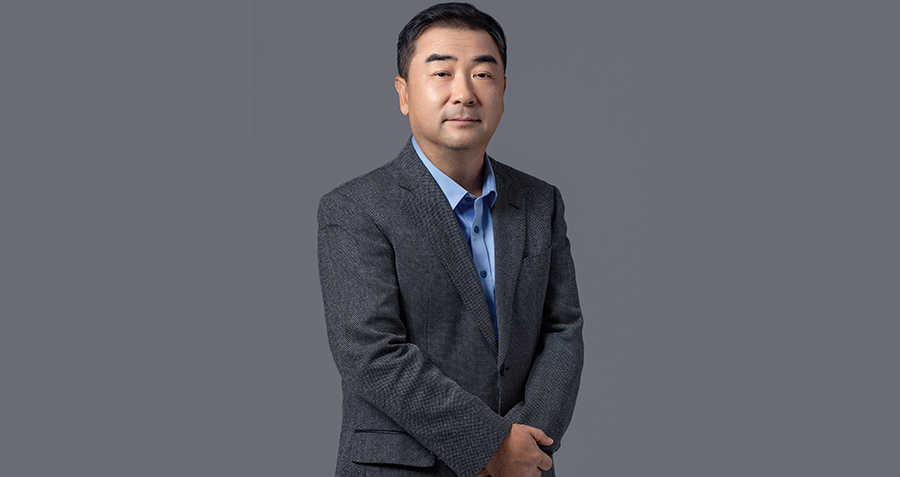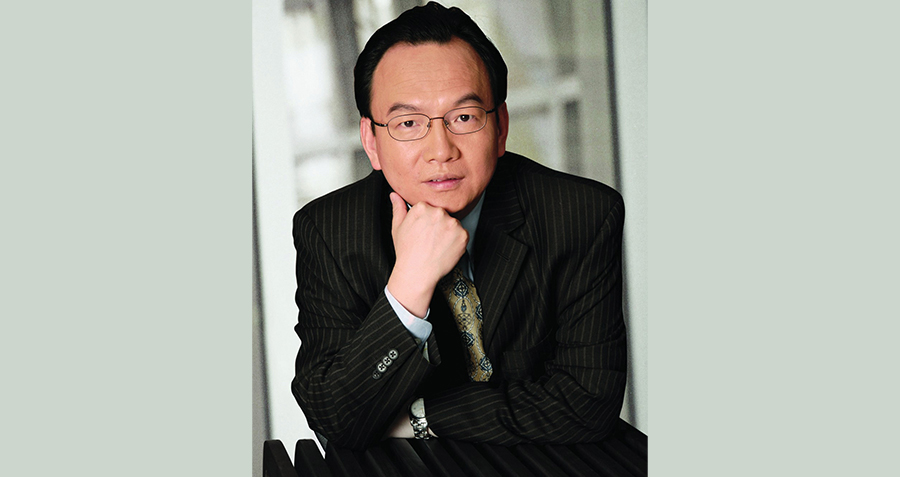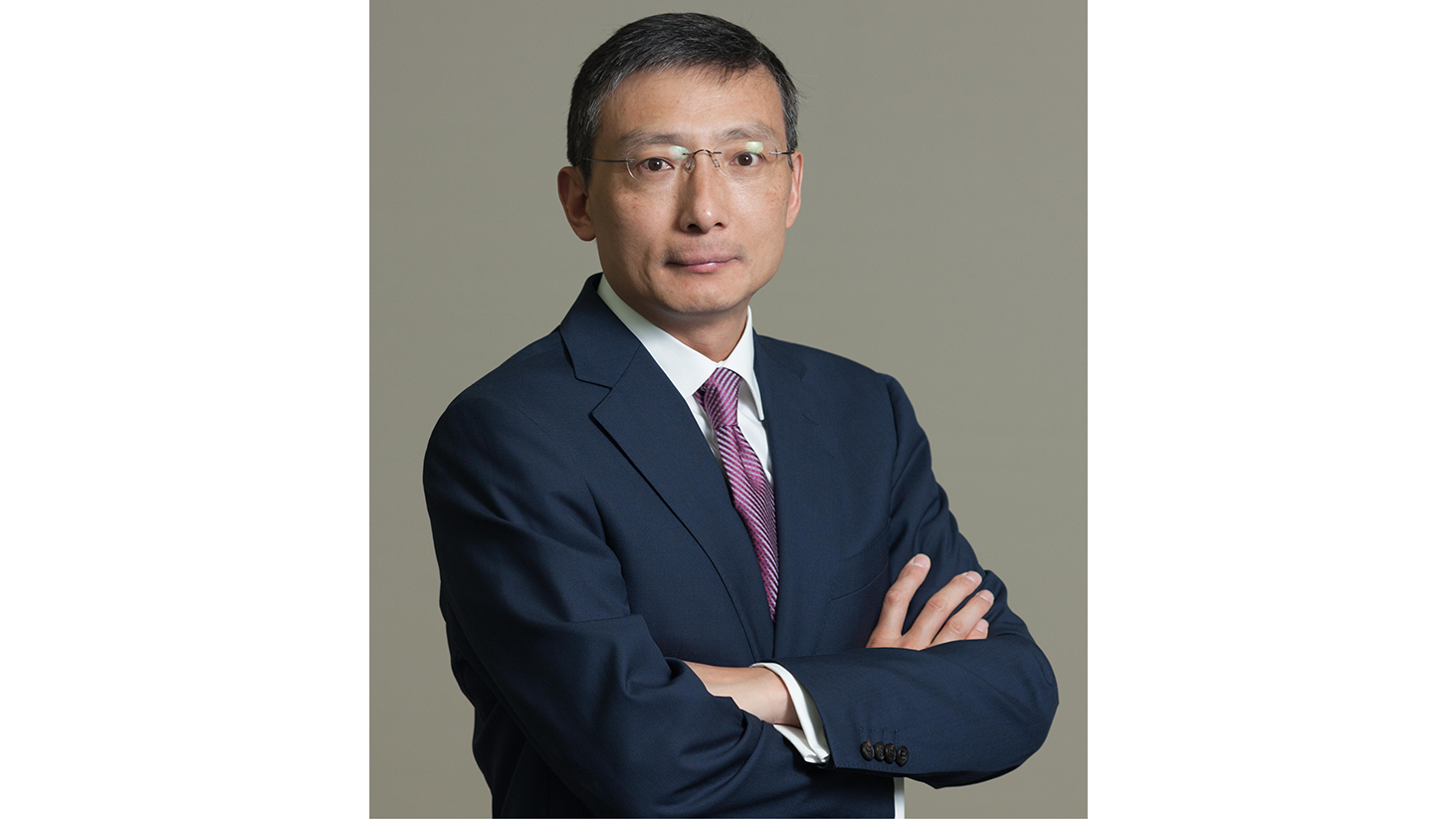Chen Ping, president of the National Center for Performing Arts, on the genesis of a world-class performing arts center in China.
Period costumes with opulent trimmings, graceful choreography, stunning visuals and resounding music make Carmen a treat for the senses. Carmen, an opera written by French composer Georges Bizet in 1875, has been enthralling audiences the world over for centuries. And now, thanks to the National Center for Performing Arts (NCPA), connoisseurs in China can also enjoy performances of acclaimed Western operas like Carmen, Rigoletto, Turandot and Tosca, as well as Chinese operas.
For the last four years or so, the NCPA, a curiously-shaped building on Beijing’s busy Chang An Avenue, has been enthralling audiences and setting new standards for the performing arts in China. The moving force behind NCPA’s success is Chen Ping, who took over as president in February 2007, just eight months before the theatre opened its doors to the public. There was a lot riding on his shoulders and the strategy had to be just perfect from the very beginning.
When Chen Ping took over, things were still on the drawing board at the NCPA, and the positioning and future development strategy was still being worked out. As he looks back today, Chen Ping vividly remembers the first few months before launch.
“I felt so much pressure at that time,” Chen Ping admits candidly. “It was the first time that such a large-scale center of performing arts was being built in China, and it was also the largest such center in the world.” The Kennedy Center of America was once the largest of its kind, occupying an area of around 17 acres. In contrast, the NCPA occupies an area of about 37 acres.
“We didn’t know how to manage or operate the cultural facilities of this large building to make sure it can produce (the desired) social and economic effect, while insisting on public welfare and also fulfilling the original intention of strengthening China’s culture industry,” says Chen Ping.
Positioning Strategy
Determining clear development goals is a prerequisite to formulating a corporate strategy, and the first step for goal-setting is to clearly define the company’s strategic positioning. Chen Ping zeroed in on three principles as the strategic positioning of the NCPA: “For the people; for the arts; and for the world”. He says, “The first manifestation of the market opportunity of NCPA is artistry, and the level of artistry will establish the influence of NCPA within the industry – especially its international standing. A high-quality theatre should be built upon a solid foundation of art.”
“Globally, opera houses have transformed from being aristocratic to populist. If you ignore the appreciation of the public, art will gradually fade away. Based on the Chinese environment, the NCPA aims to be public-oriented. In short, the NCPA must be a palace of art rooted in the ethos of the general public,” he adds.
“In today’s modern age, the wave of globalization is overwhelming, and China and the rest of the world can only develop interdependently. Even though the construction of the national theatre is a representation of the national image and national will, this being the 21st century, the theatre must comply with globalization trends. The NCPA must have a global perspective, which means it should have international characteristics.”
Chen Ping pays a lot of attention to the balance between supply and demand, and points out that the positioning of the NCPA should avoid three things. First, NCPA is not purely a theatre which makes money just by renting out of its space for other performances. Second, because the NCPA is not a performing company, it should not set profit maximization as its goal. Third, the NCPA should not just serve the so called “high-end minority”, but should also provide services for the cultural entertainment of the general public. The NCPA should consider what the public wants from the very beginning – and factor that into the program planning, inviting global troupes to perform in Beijing, planning their marketing strategy and determining ticket prices.
Based on the three principles of “For the people; for the arts; and for the world”, Chen Ping purposed five major development prospects for the NCPA: become an important player in globally-renowned theaters; be the top theater of national performing arts; be a leader of universal art education; be the largest platform for art exchange in China and abroad; and be an important foundation of the cultural and creative industry.
Substitution Strategy and Global Resource Integration
Putting these five development principles in the center, Chen Ping examined the business models of similar theaters overseas as well as their own resources and conditions. This helped him arrive at a “substitution strategy”: by introducing, absorbing, innovating and recreating the performing resources introduced from other countries, he decided to make NCPA an important pillar of the global theater industry.
“We have adopted a three-step strategy. The first step is inviting acclaimed troupes and performers to perform at the NCPA,” he says. In the initial stage, the NCPA introduced a large number of classic Western operas. Chen Ping believes that this pays back in two ways: on the one hand, most classic Western operas have been tested by the market over a long period of time, therefore, introducing them would help the NCPA learn their production and management techniques. These operas serve as a good reference point for programs that will be created here. On the other hand, the introduction of experienced troupes and performances will ensure high artistic standards.
The NCPA goes for nothing short of the best. “Our target is all the famous artists, compositions, troupes, symphony orchestras, ballet groups and theatres around the world,” Says Chen Ping. NCPA has established an arts commission, with three art directors (director of musical arts, director of dance and director of drama) to supervise the quality of the programs from their respective professional fields.
This strategy has paid off. Within a short period of time, the NCPA has earned much acclaim and has become a world-renowned theatre. Chen Ping says that a relatively strong capital investment is an important condition for attracting world-renowned groups and artists to perform at the NCPA. The other factor to consider is that most of the people who go to the NCPA are young whereas the audience in the Western theaters consists of elderly people. This reflects the great potential of China’s cultural market.
The second, and more crucial step is staging self-made renditions of popular operas. On 21st March, 2008, NCPA staged Turandot, its first homegrown rendition of the Italian Puccini opera. This was a significant milestone in the evolution of the NCPA as the performance integrated an Italian classic with Chinese performers and technical resources. In June 2009 during the first Opera Festival, the NCPA launched Italian composer Giuseppe Verdi’s Rigoletto, where the opera company gave the NCPA the right to produce and perform it in Beijing. The NCPA’s version of the Rigoletto is the first time that the Teatro Regio di Parma authorized a theater outside Italy to use its own production.
On 13th May, 2010, the NCPA put on their first original production of the French composer Georges Bizet’s opera Carmen. This opera brought together artists from five countries, including the internationally-renowned director Francesca Zambello and mezzo soprano Kirstin Chavez, who did a flawless rendition ofCarmen. The NCPA not only forged a style of its own, but it also obtained independent copyrights. The NCPA’s version of Carmen was performed by two alternate groups of actors from home and abroad.
Within a short period of time, by introducing high-quality performances from abroad and enforcing high standards, the NCPA has been able to demonstrate to the outside world the unique glamour of its own platform. In addition, it has made going to the theater a popular trend. Based on what we call the “platform effect”, the NCPA set foot in the field of ‘self-made’ performances in no time while adopting a progressive strategy of purchasing copyrights, shared copyrights and exclusive copyrights for self-made performances. In the process of strengthening its ability of producing performances on its own, the NCPA fully used the “platform effect” to integrate first-class performing resources from home and abroad to ensure world-class standards and high-quality.
Chen Ping is a firm believer in the idea of resource integration. Even for programs that they create themselves, the NCPA does not advocate the idea of doing all the work in-house. “We will find the best stage designers, directors, composers and script writers not only from China, but also from the world,” he says. “The NCPA is based in Beijing but it has a vision that spans the country as well as the globe, and the capability of resource integration is our core competitiveness”.
The third step: form a performing group. In 2010, the NCPA formed an orchestra and a choir of its own. The 62 members of the orchestra were selected from more than a thousand applicants from 27 countries and regions, among which half of the 10 foreign musicians and 50-plus Chinese musicians graduated from conservatories of music overseas, and most of them had short-term or lifelong contracts with world-renowned philharmonic societies, such as Berliner Philharmoniker, Vienna State Opera, American New World Symphony, Dresden Philharmoniker and Cologne Opera House. Chen Ping says, “By doing so, we stand on the shoulders of giants, and have quickly come in line with international practices.”
“In the long run, accumulating experience and cultivating and maintaining a group of hard-won professional talent in creating and producing are the essential support to establish the worldwide influence of the NCPA’s own programs.” From the first NCPA-made opera, Turandot, in 2008 till now, the NCPA has successfully produced 21 plays and operas, covering several art genres of opera, Peking opera, drama and dance drama, of which 17 plays and operas are produced by the NCPA, which owns their copyright at the same time.
Challenges of “Going Global”
On 25th January, 2011, Turandot was performed in a foreign land for the first time. It got rave reviews for the four successive performances in the opening show of the 2011 Performing Season in the South Korea State Opera House. NCPA is scheduled to have six overseas tours in 2012, and that number is slated to go up every year.
From importing performances to exporting performances they produced on their own, the NCPA is going to face a new set of challenges with regard to globalization. Chen Ping hopes that the development of the NCPA will be more globalized. “We should not always import foreign performances with high costs while exporting China’s performances at a low price or for free. Although China’s economy has grown rapidly, our main aim is to raise the stature of Chinese culture. There are rich cultural resources and art resources in China. However, we are still looking for ways to transform them into competitive products of external cultural trade. In the cultural industry, China owns first-class actors, second-class stage art and third-class operation. In the future, we should put major efforts to integrate domestic superior art resources to produce competitive products that are oriented towards people, markets as well as the global arena.”
(Extracted from an exclusive interview with Chen Ping by the CKGSB Center for the Study of Globalization, Cheung Kong Graduate School of Business. Interview adapted for publication by CKGSB Knowledge Center)
















